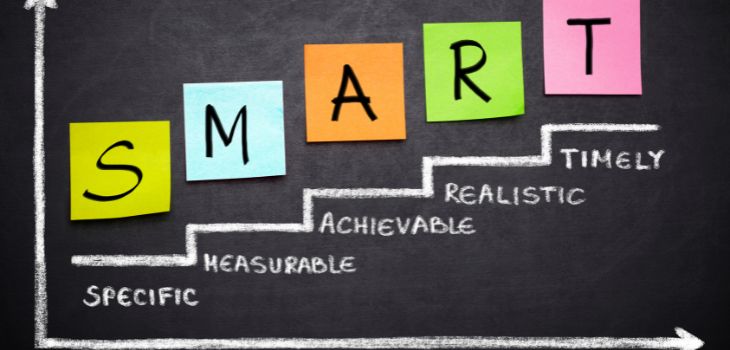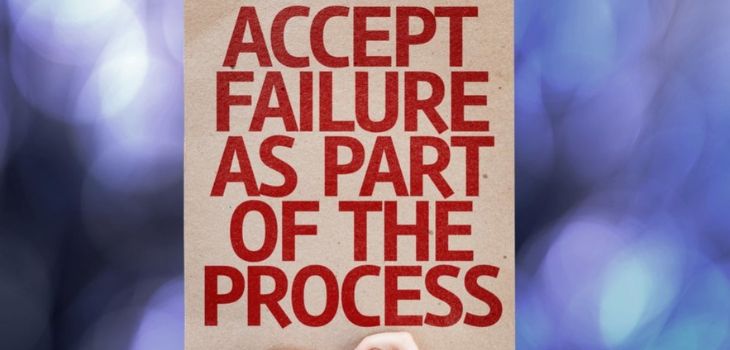
541: Break Free from Bad Habits: Discover The Life-Changing Power Of 7 Neuroscience-Based Strategies To Reclaim Your Health
Bad habits feel like a trap. We have the desire to change. We even know what to do most of the time.
Then why is it so hard?
That’s a question I’ve asked myself for years. But after 24 years of coaching high-performing clients to successfully change their behavior and improve their health, I’ve figured out a few things.
The first is that you have the power to change.
Thanks to neuroplasticity, the brain’s incredible ability to rewire itself, our brains change all the time. Your brain’s neural connections are like computer software that can be updated.
The problem is that most of us have never been taught how to properly program ourselves.
If you have an unhealthy habit, it’s because you’ve practiced it so much that it’s become automatic. This could’ve even started in childhood.
But the brain is also capable of neuroplasticity in the opposite direction. By engaging in new behaviors repeatedly, we can weaken the connections associated with unhealthy habits.
With these 7 evidence-based strategies from psychology and neuroscience, you can swap out your unhealthy habits for healthier ones and finally become the person you’ve always dreamed of being.
The power to change is within you and I’m here to show you the way.
Let’s dive in!
Strategy #1: Identify Triggers
Psychologist Nathaniel Branden said, “The first step toward change is awareness. The second step is acceptance.”
And I agree.
Understanding the triggers that lead to unhealthy habits is crucial for habit change.
If you’d like, keep a journal to track when and why you engage in the habit you want to change.
Once you’ve identified your triggers, you create strategies to avoid or manage them more effectively.
For example, I don’t keep ice cream at home. Because it’ll disappear in 24 hours. It doesn’t even matter how much. So I make sure that I only buy ice cream when I’m out or I buy a single serving of it to bring home.

Strategy #2: Set “Why SMART” Goals
Setting goals and achieving them can be a powerful way to change behavior.
The reason they work so well is that setting and achieving a goal rewards you by releasing dopamine in your brain. That’s why progress is so addictive.
But if done wrong and you’ll end up feeling miserable and quitting.
That’s why I love “Why SMART” goals.
The SMART acronym stands for Specific, Measurable, Achievable, Relevant, and Time-bound. The “Why” is sitting down before you set your smart goal and getting clear on why it’s important for you to achieve.
Research shows that setting SMART goals increases the likelihood of success. But I find the “why” part a missing component. I take all my clients through an exercise to get clear on this before moving forward.
Here’s an example of a SMART goal out of my own life. Instead of saying “I want to get leaner” I’m more specific: “I will track my food with MyFitnessPal daily and will make sure my weekly calorie average is within 100 calories of my goal.”
Why is this important? Because my credibility as a health coach as well as my ability to live the type of life I want relies on my health.
Strategy #3: Replace, Don’t Erase
When it comes to habit change, the neuroscience principle of “synaptic pruning” is essential.
Instead of trying to eliminate a bad habit, create a new habit to replace it.
This helps your brain weaken the neural pathways of the old habit and strengthen the new ones.
For example, I wanted to quit eating so many calories at night. So instead of sitting on the couch using willpower to stop myself from raiding the pantry, I ate some sugar-free Jello or 0% fat Greek yogurt with protein powder and sweetener instead.
Strategy #4. Utilize Implementation Intentions
Research suggests that creating “if-then” plans, or implementation intentions, can significantly increase your chances of success.
This is harder to do but it can still work well.
You start by identifying potential obstacles and decide in advance how you’ll handle them. One example I’ve used is, “If I feel the urge to give into a craving, then I’ll meditate or go for a walk instead.”
Using the sauna after work instead of having a glass of wine is an example one of my clients came up with.
As you can imagine, it can be tougher to implement these when you’re having strong cravings for alcohol or junk food. But if you feel like you can, this strategy can be powerful.

Strategy #5: Leverage Social Support
Having the right support for changing your behavior is key.
Positive social interactions release neurotransmitters like dopamine, serotonin, and oxytocin in the brain. These chemicals are associated with reward, pleasure, and social bonding.
Changing habits can be emotionally taxing. Social support can help individuals manage stress and negative emotions associated with habit change.
The prefrontal cortex, which is responsible for emotional regulation and decision-making, can function more effectively when an individual feels supported and less stressed.
I see this play out in my coaching program all the time. The clients who have support from their family and friends always do better than the ones who don’t. It’s that simple.
Also, the clients who have friends that focus on eating better and being active also have an easier time.
On top of that, all my clients achieve more impressive results working with me than before they signed up for coaching.
Who you spend time around has a profound impact on the habits you develop. And hiring an expert can help you hit your goals much faster than you can do on your own. Both experience and research back this up.
Getting the support you need leads to an increase in motivation, accountability, and results.
Strategy #6: Get Quality Sleep Every Night
Are you struggling to build new habits that stick?
Poor sleep might be to blame. Getting enough sleep before learning can help your brain form memories and habits more effectively. But that’s not all. Getting a good night’s sleep after learning is crucial for solidifying that new information in the neural connections of your brain.
But here’s the thing: if you don’t get enough sleep, your ability to learn new things can plummet by up to 40%.
That’s a staggering number, and it means that no amount of cramming or all-nighters will make up for a lack of sleep. When you’re sleep deprived, your brain’s hippocampus, the part responsible for making new memories, suffers.
Poor sleep also increases your stress hormone cortisol and makes you more likely to default to old behaviors.
So, if you’re serious about improving your ability to learn and retain information, it’s time to prioritize your sleep. Make it a habit to get enough sleep before and after learning, and watch as your brain becomes better equipped to form new habits and memories.
I track my sleep every night with an Oura ring to make sure I’m getting at least 7 hours of sleep. I don’t always hit my target. But I’m sleeping better than ever because of using a wearable to track my sleep quality.

Strategy #7: Embrace Failure as a Learning Opportunity
Changing habits is a challenging process, and setbacks are inevitable.
Instead of viewing failure as a sign of defeat, see it as an opportunity to learn and grow.
Studies have shown that people who adopt a growth mindset are more resilient and better equipped to handle setbacks on their journey to success.
The problem is the last thing you want to do when you’re feeling like a failure is to look for the lesson. And this is exactly why it’s such a powerful opportunity to build better habits.
Ask yourself, “What can I learn from this so that I can do better next time?”
Then do it.
This is an exercise I take my clients through when they’re feeling like they’ve fallen off the wagon with their health. It’s not easy but it works. And it becomes a habit itself when you do it enough.
Conclusion
You have the power to transform your habits.
And the journey toward a happier, more fulfilling existence is entirely within your reach. With the help of science-backed strategies such as identifying triggers, setting SMART goals, and replacing unhealthy habits with positive ones, you can leverage the incredible power of neuroscience to achieve the health you dream of. Don’t forget to enlist the support of your loved ones, prioritize restful sleep, and embrace every failure as a chance to learn and grow.
Remember, the power to change your life lies within you. But choosing the right strategies is critical. Use methods that work with your brain’s wiring (instead of against it) and you’ll get the edge you need to succeed!
Related Episodes:
Ted Talk 169: The Simple (But Effective) 7-Step Framework To Build Healthy Habits for Life
525: The Habit Factor: How to Align Habits with Goals to Achieve Success with Martin Grunburg
523: 3 Habits I Used to Achieve 10% Body Fat without Giving Up My Favorite Foods with Ted Ryce
Similar Episodes you may like
About the Show
The Legendary Life is a fun and enlightening look at health fitness, nutrition, biohacking, fat loss, anti-aging, and cutting-edge health advice from celebrity fitness trainer Ted Ryce. Ted’s clientele consists of celebrities, including Richard Branson, Ricky Martin, and Robert Downey Jr., CEOs of multimillion-dollar companies, and other high performers.
He breaks down countless health topics and provides science-backed solutions and the most effective, uncommon strategies to rapidly lose weight, improve your health, and upgrade your physical and mental performance, so you can live the life you deserve.
He breaks it down by providing science-based information so you can clear up the confusion and finally lose weight, fight disease, and live a longer, healthier life.
No guru. No fluff. And no preaching of generic fitness advice here. Along the way, Ted shares his own journey of how he turned great tragedy and loss into success and hope.
Now, his mission is to empower you with the tools and the knowledge you need to live your best life. New episodes every Monday and Friday.





